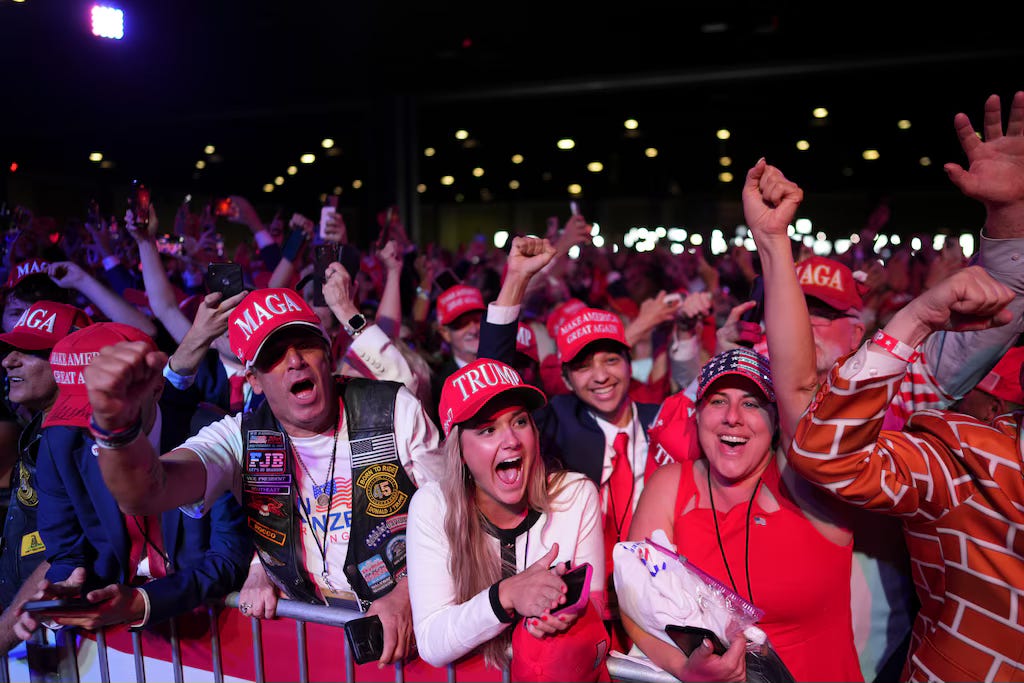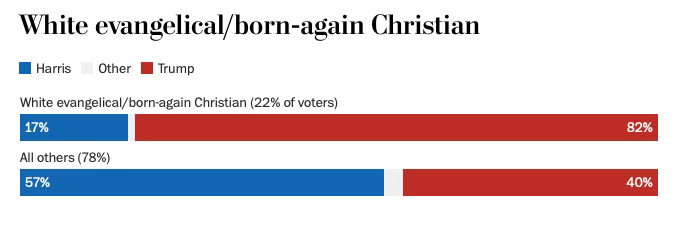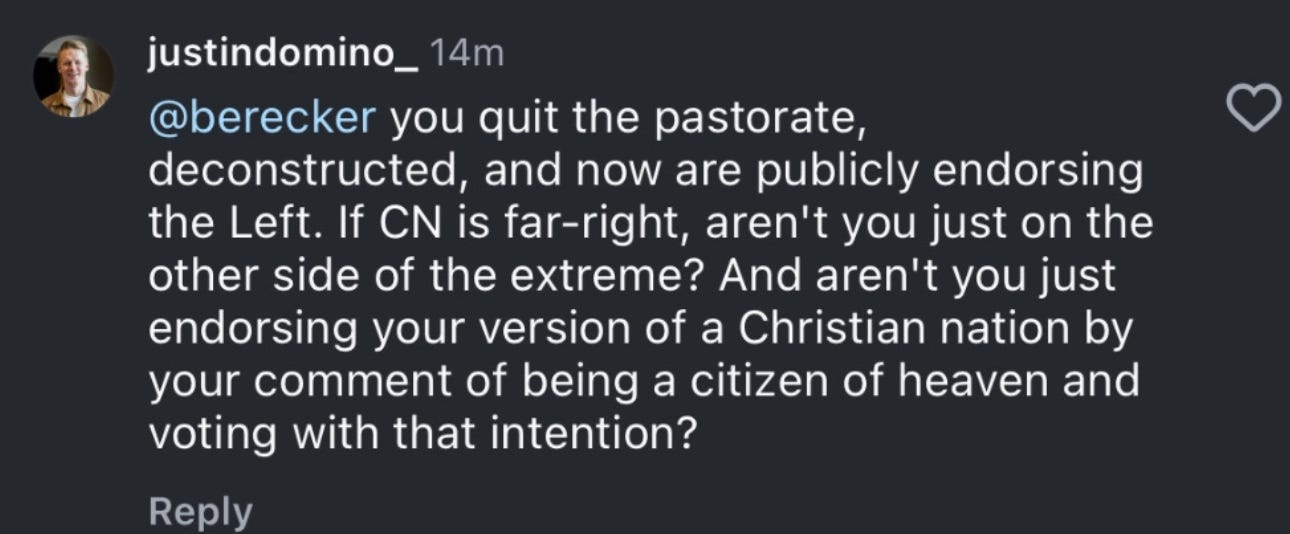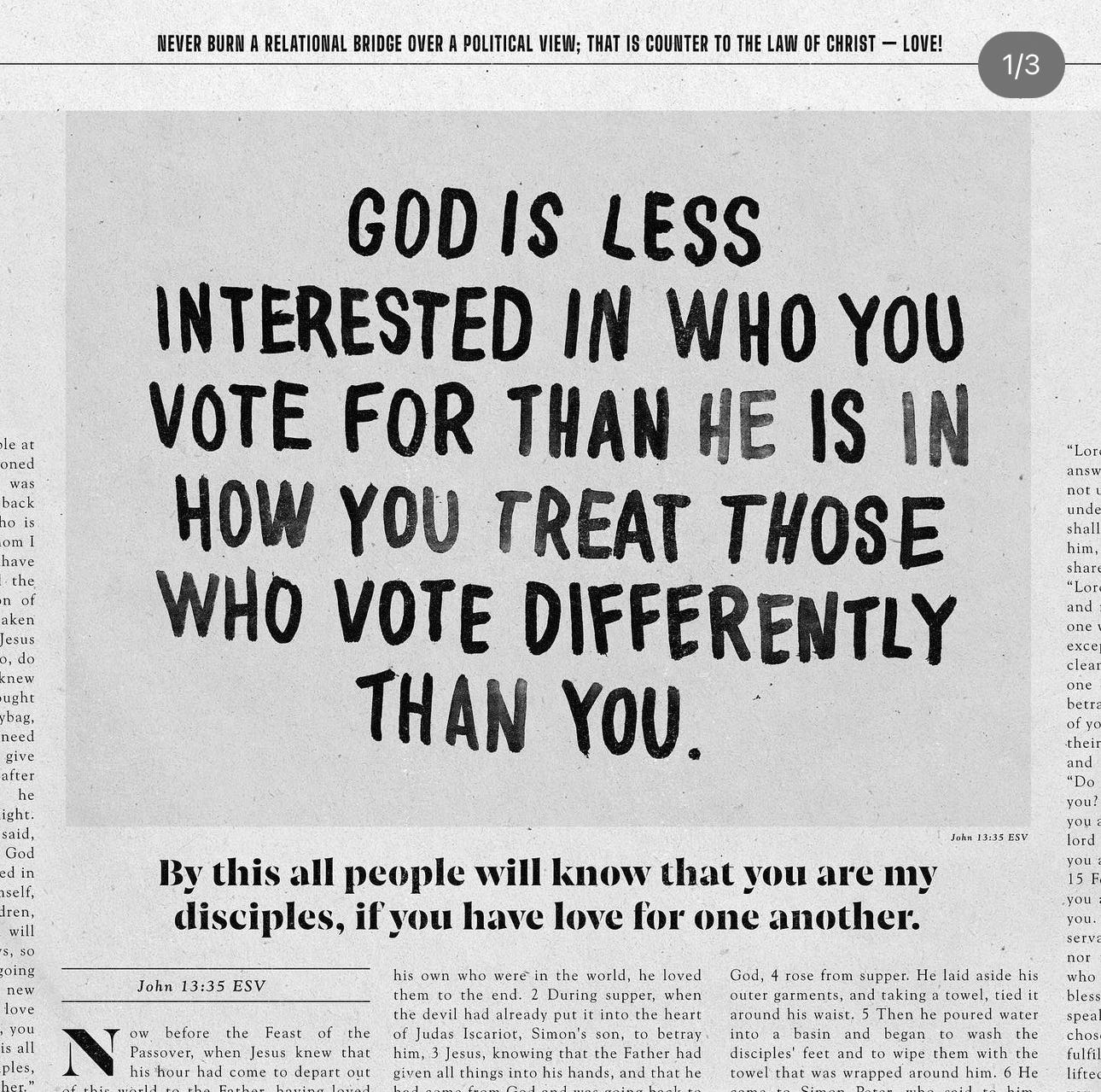Rattling the Chains
Notes on Oneness, Liberation, and Finding our way forward in Trump's America
It’s been a day since we elected Donald Trump to be our President, for the second time. This time feels different. In 2016, many of us were shocked. In 2024, we’re devastated, but many of us are clear-eyed. This is who we are. No need to be surprised, but dammit we have work to do.
Some of us still need space to mourn. Take your time.
Yesterday, I grieved, commiserated, and checked on my friends. Today, I'm ready (or at least attempting to be ready) to wrestle with the hard questions: How do we fight for justice while maintaining our humanity? How do we resist oppression without becoming what we oppose? Lives hang in the balance—immigrant children in detention centers, trans youth denied healthcare, women refused life-saving medical care, communities of color facing escalating threats, and the window of time to act on climate change rapidly closing. The very future of our democracy and planet demand we find answers.
In my anger yesterday, I found both comfort and challenge in the words of womanist theo-activist Tamice Spencer-Helms (I encourage you to read the whole thing). They wrote, "There is no them, there is only us... Hierarchies and binaries are rooted in an inability to recognize our shared humanity with those we deem as 'the other.'" Their words cut to the heart of our struggle, and reminded me how essential it is that we maintain our humanity as we pursue justice.
Spencer-Helms continued, “Jesus and other revolutionaries have taught us to love our enemies; it's essential for our survival as a species. It brings to mind the words, 'Do not fear those who can only kill the body,’ suggesting that we face a more harrowing kind of death. The death of our awareness of oneness. The way forward is to seek to love your enemy because your enemy is you…
No one is free until everyone is free is not a slogan, it's a spiritual reality--as real as death and gravity.”
But here's where things get complicated. This awareness of our fundamental unity is more crucial than ever, especially as I find myself angrier than ever at those who voted to empower someone who has systematically vilified my neighbors. The challenge before us is this: How do we hold onto our shared humanity while refusing to compromise with systems of oppression?
I'm seeing the sentiment on social media that it's time to get mean. I understand the impulse—after all, look where we are. But perhaps it would be better to say now is the time to get clear. As Brené Brown says, clear is kind. We have a mandate to speak clearly to the horror of white supremacy and queerphobia, because it is killing people. No more bending over backwards to make people feel comfortable in their bigotry. No more coddling straight white feelings while our queer neighbors and brown neighbors suffer.
So let me be clear: white Christians elected Donald Trump. There can be no more equivocating. This is a white Christian problem. If you are a pastor, or someone who has influence over white Christians, then this is your problem. Our problem. We can’t put our head in the sand any longer.
Unfortunately, evangelical leaders are often guilty of spiritual bypassing. They use biblical language to sidestep the real-world consequences of our politics.
At a popular evangelical church last Sunday, the pastor reminded his congregation, “remember where your citizenship fully and finally lies… we are foreigners and strangers on this earth... Every other allegiance will expire."
First of all, I technically agree with this. Although I voted for the Democrat party in this election, I do not have some ultimate allegiance to it. And yet, I personally find this emphasis to fully miss the gravity of the moment. When over 80% of white evangelicals are fully committed to Trump, to address them only in vague terms without calling out the hatred in the white reactionary Christian movement is to essentially endorse their commitment to support a race-baiting, fascist leaning, queerphobic demagogue. The failure of evangelical leaders to name and oppose this reality has allowed reactionary Christian nationalism to metastasize in our churches.
Being a “citizen of heaven” is a beautiful metaphor, but it does not mean that we are focused on saving souls for a future heaven in the afterlife, it means that we are called to represent the values of heaven here on earth, and seek to embody them in the world. And what that truly means is liberation for the oppressed.
We have a serious problem, and it isn’t in heaven, it’s on earth. It’s in the hospital parking lot where a woman died after being denied miscarriage care due to a Texas abortion ban. It’s in our schools, where children drill for the mass shootings we’ve decided are an inevitable part of American life. It’s in the children’s eyes as they are torn from their families at the border. If our heavenly citizenship doesn’t rattle the chains of domination that hang heavy on our brothers and sisters, then it means nothing at all.
Recently, a conservative Christian challenged me on social media: "You quit the pastorate, deconstructed, and now are publicly endorsing the Left. If Christian Nationalism is far-right, aren't you just on the other side of the extreme?"
Yes, I am “on the other side of the extreme.” Jesus wasn’t crucified for being a milquetoast moderate!
The difference is, Christian nationalists want to impose a vision of power and domination. They want to wield political power to force people to conform to their dogma. I believe the kingdom of God should impact the world by bringing liberation to the oppressed and inclusion for the marginalized.
This love doesn’t settle for niceness— it means we must call our neighbors to abandon the weapons of domination and white supremacy and recognize our shared humanity. White Christians tend to be very bad at this— the love we were taught to show was flaccid, and usually disconnected from liberation from systems of oppression.
For example, I saw this post today, expressing a typical sentiment: “God is less interested in who you vote for than He is in how you treat those who vote differently than you.”
What if God cares about both? Love is not only shown on the interpersonal level. As Cornel West has said, “Justice is what love looks like in public.” If we vote against liberation, and vote for the perpetuation of systems of domination, then we can’t just say we’re showing Christian love, even if we’re being nice.
It’s OK to be angry at people who voted to deny your humanity. They way to love an oppressor is to call them to repent from their dehumanization, repent from their white supremacy and hetero-supremacy, and lay down their weapons of domination. Like Robert Jones Jr. said, “we can disagree and still love each other unless your disagreement is rooted in my oppression and denial of my humanity and right to exist.”
There is nothing Christian about a vague niceness that is content with the subjugation of our neighbors. I’m not saying we should be dicks to Trump voters. Many are badly informed but well-intentioned people. Shaming them won't help. We must not dehumanize them in return— we must invite them back into our shared humanity. We must remember our oneness.
Yesterday, someone asked me if I believed Jesus was going to come back. Is God going to break in and fix this fucked up shit, like a “dues ex machine” in the last act of a movie?
Listen, I think it would be dope as hell if Jesus rode out of the sky on a horse on January 20th, interrupted the inauguration and said, “No, no, no. We’re not doing this again. I’m taking it from here.” But I doubt that’s what Jesus meant by coming again.
Jesus told us that he would come to us, not just a second time, but every day, in “the least of these.” Kurt Marti, a Swiss pastor and poet, prayed, “The ones we would rather not see are Your gaze. The ones we would rather not hear are Your voice.” Many Christians, in looking for a second coming of Christ, miss the way that Christ comes to us again and again in the face of the marginalized. We don’t know what God is going to do in the future, but we know what we are supposed to be doing right now.
Many people are asking right now, where the fuck was God on Tuesday? Where is God going to be for the next four years? One Quaker pastor said in perfectly: “God is not ‘on the throne.’ God is on the ground, tending wounds caused by the throne, meeting basic needs neglected by the throne, and inspiring movements of loving resistance to the throne.” Like Mr. Rogers says; “look for the helpers.” That’s where God is. God is not present in the systems of domination, but in our actions of compassion and solidarity. This is what it means for us to be citizens of heaven, or “the hands and feet of Jesus.”
Spencer-Helms warns us about "the death of our awareness of oneness" as something more harrowing than physical death. Maybe that's why this moment feels so devastating—it reveals how deeply we've forgotten our interconnectedness. But it also points the way forward. We can be both clear and loving, both resistant and unified, both heavenly-minded and earthly good. The work of oneness isn't about being nice. It's about being real. It's about getting clear. It's about showing up, again and again, where God already is—on the ground, tending wounds, inspiring resistance, pursuing liberation.









Thank you. I needed these words today. This is what I've been trying to communicate to my family for years. I feel like they are blind to all else but a focus on their own status in heaven, crowns, and a, "Well done, good and faithful servant." while aiding in the suffering of the people and world we are meant to be a helper, keeper, and ministry to.
Thanks for the post Brian. I'm not a Christian myself, but as a gay man, I've had a lot of experience with the worst ways Christianity can be interpreted. What I find in your writings is a kind of love that I can get behind. Bravo! Keep writing, keep going, keep illuminating.